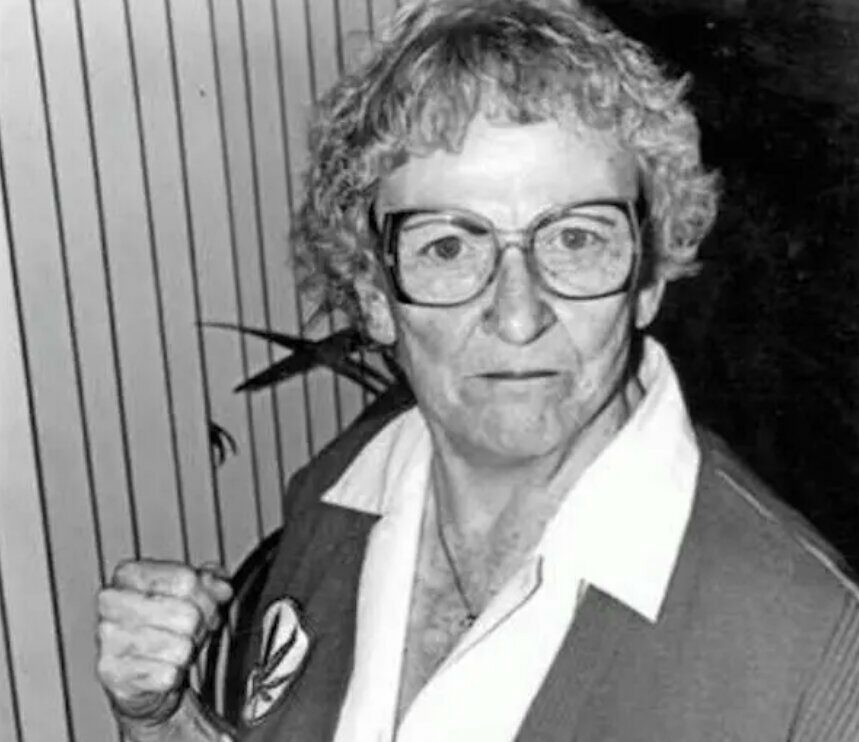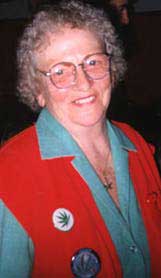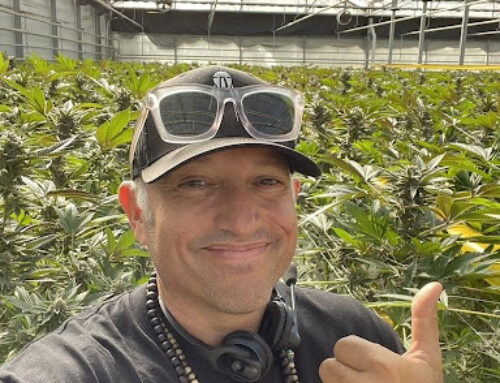Brownie Mary: The Unlikely Heroine of Cannabis Advocacy
SAN FRANCISCO–In the quiet streets of San Francisco during the 1970s, an unassuming elderly woman with frizzy hair and a grandmotherly smile quietly built a legacy that would forever change the trajectory of cannabis legalization and patient advocacy. Her name was Mary Jane Rathbun, but to the world, she was known simply as “Brownie Mary.”
Brownie Mary’s story is one of resilience, compassion, and an unwavering belief in the medicinal power of cannabis. At a time when cannabis was vilified and users were marginalized, she baked brownies—not just any brownies, but ones laced with cannabis, which she distributed to terminally ill patients, particularly those suffering from the ravages of AIDS. Her efforts not only provided comfort to those in pain but also helped lay the groundwork for the modern medical cannabis movement.
A Sweet Beginning
Mary Jane Rathbun was born on December 22, 1922, in Chicago, Illinois. She grew up in a working-class family, far removed from the radical social movements she would later embrace. After moving to California in the 1950s, Mary worked as a waitress for much of her life, earning a modest living. It wasn’t until her 50s that she earned the moniker “Brownie Mary,” thanks to her side hustle of baking cannabis-infused brownies.
Her brownies, affectionately referred to as “magic brownies,” quickly gained a cult following in San Francisco’s burgeoning counterculture scene. She sold them for $20 a dozen, using the proceeds to support her modest lifestyle and fund her activism.
A Turning Point: The AIDS Crisis
By the 1980s, San Francisco was at the epicenter of the AIDS epidemic. Thousands of young men, ostracized by society and left without effective treatments, found themselves in desperate need of care. Brownie Mary stepped in, providing cannabis-infused brownies to alleviate their symptoms, which included chronic pain, nausea, and loss of appetite caused by the disease and its treatments.
Mary’s work was deeply personal. She referred to her recipients as her “kids” and often made house calls, delivering brownies with a maternal warmth. She became a fixture at San Francisco General Hospital’s Ward 86, one of the first dedicated AIDS units in the country, where she volunteered tirelessly.
Her compassionate work, however, did not go unnoticed by law enforcement. In 1981, Mary was arrested for possession and distribution of cannabis, an event that garnered widespread media attention. Appearing in court, she wore a floral dress and clutched her purse like any unassuming grandmother, but her fiery defiance shone through. She unapologetically declared, “I make them for the sick and the dying. They need them.”
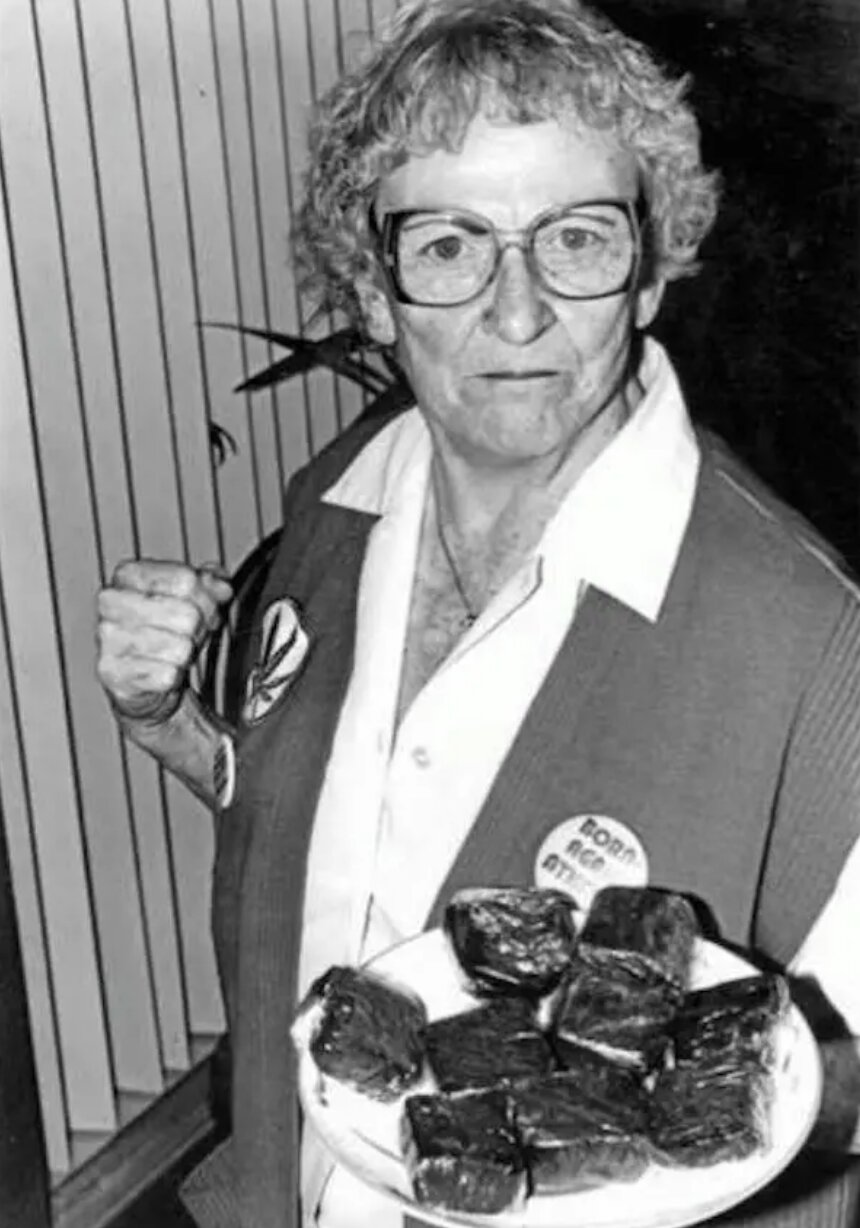
A Folk Hero Emerges
Mary’s arrest transformed her into a folk hero. Local activists rallied around her, and she became a symbol of resistance against what many saw as the cruel criminalization of a harmless and helpful plant. Her case was ultimately resolved with probation and community service, but she continued her work unabated.
By the mid-1980s, Mary had joined forces with Dennis Peron, another influential cannabis advocate, to campaign for the rights of patients to access medical cannabis. Together, they were instrumental in the passage of San Francisco’s Proposition P in 1991, which urged the state of California to legalize medical cannabis. This effort laid the foundation for Proposition 215, the landmark 1996 ballot initiative that legalized medical cannabis statewide.
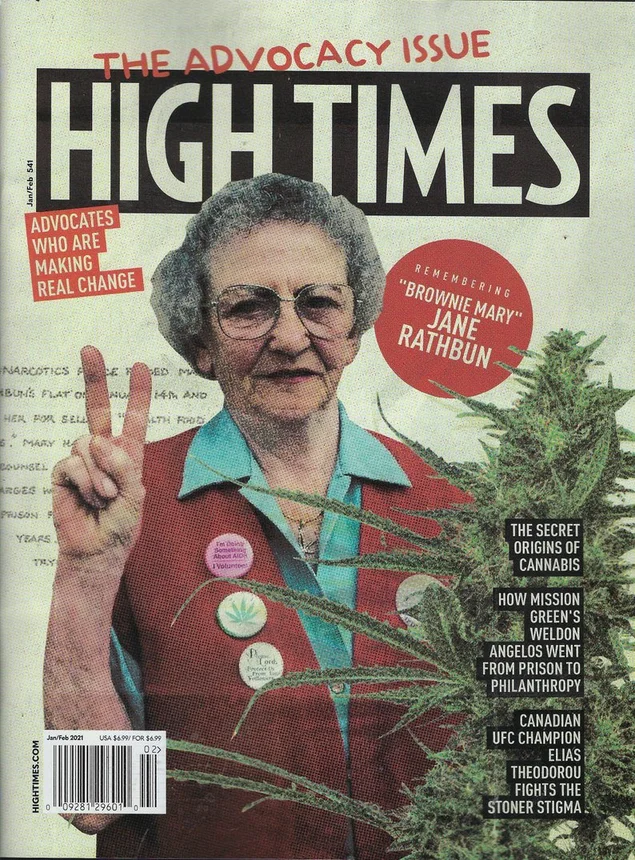
Recognition and Respect
Though Mary was arrested several times throughout her life, her status as a beloved figure in San Francisco shielded her from harsher penalties. In 1992, the San Francisco Board of Supervisors declared August 25 “Brownie Mary Day” in honor of her contributions to the community.
Despite her advancing age and declining health, Mary remained active in advocacy until her death in 1999 at the age of 76. She lived long enough to witness the passage of Proposition 215, a moment she described as one of the proudest of her life.
A Legacy Baked in Compassion
Brownie Mary’s influence extends far beyond the legalization of medical cannabis. She humanized the fight for cannabis reform by framing it as an issue of compassion and healthcare rather than politics or recreation.
Her grassroots efforts demonstrated the power of small acts of kindness to drive monumental social change. Today, her legacy lives on in the thousands of dispensaries, advocacy groups, and patient networks that exist because of her early efforts.
In San Francisco and beyond, Brownie Mary remains an icon of the cannabis movement, celebrated not only for her activism but also for her humanity. Statues have been proposed in her honor, documentaries have chronicled her life, and her story is taught as part of the history of cannabis legalization.
The Continuing Fight
The modern cannabis industry, worth billions of dollars, owes much to pioneers like Brownie Mary. Yet, the fight she began is far from over. Federal legalization remains elusive in the United States, and many patients still face barriers to accessing medical cannabis.
As the movement she championed continues to evolve, it’s worth remembering that it all began with a little old lady in a San Francisco kitchen, armed with a mixing bowl, a bag of weed, and a heart full of love. Brownie Mary didn’t set out to change the world; she just wanted to help her “kids.” In doing so, she left an indelible mark on history.
Her story is a reminder that even the humblest among us can rise to the occasion when compassion demands it. As cannabis legalization expands across the globe, Brownie Mary’s legacy serves as a moral compass, urging advocates and industry leaders to prioritize care, kindness, and community above all else.
Brownie Mary’s life was a testament to the power of grassroots activism, and her legacy continues to inspire a new generation of cannabis advocates. Her brownies may have been her medium, but her message was simple: No one should have to suffer alone.











